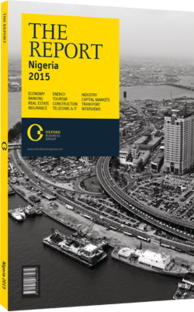IT solutions
The Company
Computer Warehouse Group (CWG) was incorporated as a private limited liability company in 2005 and fully commenced operation in 2011 following its 2010 acquisitions of 100% stakes in CWL Systems, DCC Networks and ExpertEdge Software. The company is currently a leading IT solutions provider specialising in the supply, installation, integration, maintenance and support of computer equipment, e-payment hardware and ancillary equipment. The group became a public liability company in 2013 following a listing on the Nigerian Stock Exchange through a private placement exercise. Though incorporated in 2005, its operations in Nigeria’s ICT industry date back to the incorporation of its forerunner, CWL Systems, in 1991 as a computer hardware supply and maintenance firm. CWL later diversified into networking and communication services in 1995 by founding DCC Networks, and then into the sale of customised software in 1998 by acquiring a substantial interest in ExpertEdge. The operations, assets and liabilities of these companies have all been transferred to CWG and they currently operate as business divisions within the group.
Financial Performance
In 2014, revenue rose by 17% year-on-year (y-o-y) to N3.5bn ($21.4m) on the back of significant growth in the software business. Though the IT infrastructure business contributed the largest amount to the top line, its 42% y-o-y growth was outpaced by the 107% expansion in revenue from the software division. Growth in both sectors helped offset current hiccups in the communications and support services arms, where sales slowed compared to 2013. Growing demand for software applications continued to support success in the software business. Despite the double-digit revenue growth, gross profit fell by 1% y-o-y to N679m ($4.1m) due to faster growth in cost of sales, which rose by 22% y-o-y and produced a margin of 81% on the revenue, down from 71% in Q1 2013. As with sales revenue, IT infrastructure contributed the biggest portion (45%) of sales cost, though input cost in the software division grew at a faster rate than other businesses (110%). Operating profit improved from a loss position in 2013 to N25m ($152,500) in the period under review. In addition to other income, which grew by 46% y-o-y to N16m ($97,600), an 11% reduction in total operating expenses to N670m ($4.1m) helped support the profit line. Specifically, core operating costs fell marginally by 8% y-o-y, while depreciation and amortisation costs fell by 30%, a result of savings from ongoing reorganisation in the communications business. Gross operating expenses came in at 19%, a fall of 600 basis points on Q1 2013. Following a 64% y-o-y reduction in finance charges, profit before tax (and after tax given the lack of tax provision) came in at N10m ($61,000), from a N99m ($603,900) loss in Q1 2013. Finance charges fell by 51% y-o-y in fiscal year 2013, a decline that is mirrored in the lower short-term loans and borrowings shown in the statement of financial position. The result was a net profit margin of 0.28%, which, though an improvement from the negative position it held in 2013, is low, despite the management’s cost optimisation tactics and especially in light of the magnitude of revenue reported in the three-month period.
Development Strategy
CWG 2.0, the group’s strategic plan, embodies a shift in business model from episodic services into a subscription-based system as a dual-advantage play. Besides its potential to guarantee higher and sustainable revenue, this model minimises costs and maximises the group’s social impact by investing in the economy. To this end, CWG has introduced three initiatives: first, the launch of a tier-3 data centre to provide clients with equipment colocation and virtual storage space, developed in two phases with a combined capacity of 54 racks at an estimated cost of $2m; second, its Smart Grid Solution, which aims to provide revenue assurance for electricity distributors by closing the metering gap; and third, the MTN Xaas and MTN Yellow Diamond Account, which aim to leverage opportunities offered through the central bank’s financial inclusiveness initiative.
You have reached the limit of premium articles you can view for free.
Choose from the options below to purchase print or digital editions of our Reports. You can also purchase a website subscription giving you unlimited access to all of our Reports online for 12 months.
If you have already purchased this Report or have a website subscription, please login to continue.

